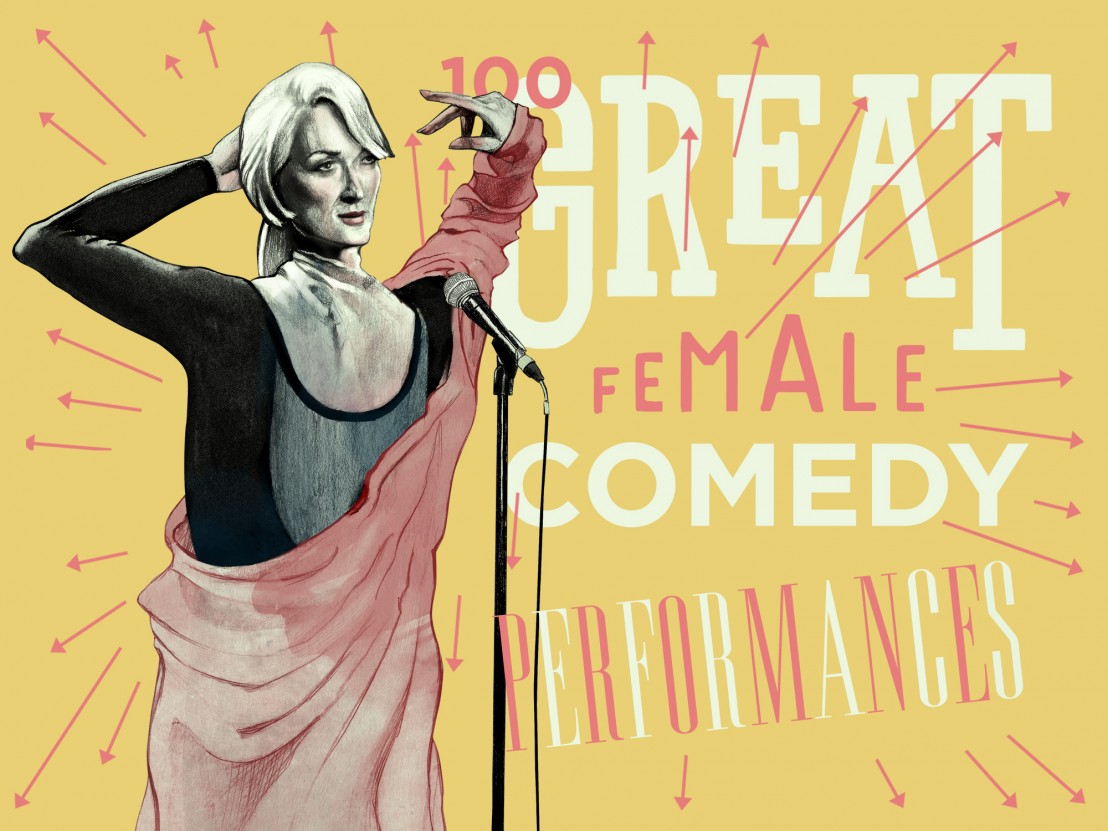
A tribute to some of the most memorable comic turns from women actors, featuring an immortal Meryl Streep.
Comedy may be subjective, but everyone loves a good laugh. Whether its function is to educate, enlighten or simply entertain, a good joke is one of the most powerful communication tools we have. Humour can be refined or risqué, scornful or self-deprecating. It has the capacity to inspire, shock and introduce new ways of seeing the world. Down the years, cinema has provided some truly hysterical, unforgettable moments, be it in a classic Hollywood screwball, a lesser-seen ’80s slapstick gem, a scathing contemporary satire or something else entirely. The women featured in this list are not necessarily renowned comedians, but they have each given us at least one great comic performance. Here, in the first of five parts, is our hat tip to the finest female actors to have ever tickled our funny bone.
Hell hath no fury like a scorned Streep. As fading film star Madeline Ashton, she embodies the very worst parts of you and me; ungraceful and unrelenting, she spits venom, castrates lovers and gleefully stabs her oldest frenemies in the back. And yet, when we look beyond the caricature of the hag clinging to youth with clenched talons, we see the struggle many women face in a society so eagar to slap an expiration date on our value. This is Meryl at her cackling, hyperbolic best. Aimee-lee Abraham
The clue is in the title. Barbra Streisand was the obvious choice for the part of real-life ’30s comedienne Fanny Brice in William Wyler’s romantic musical, seeing as how she’d previously starred in the Broadway version for most of its original run. Yet no one could have predicted just how successfully she would transition to the silver screen. Already a popular face in America at the time of the film’s release, Funny Girl sent Streisand stratospheric, earning her the Oscar in 1969 and leaving audiences with one of the enduring female performances of the era. Adam Woodward
Being forced to pick just one of the performances in George Cukor’s unimpeachable, female-dominated ensemble comedy from 1939, we’d have to thank Rosalind Russell and Joan Crawford for their sterling efforts, but the champagne and caviar goes to film-stealing bit player Mary Boland for her out-and-out hilarious turn as daffy blue blood, the Countess de Lave. Turning up in the second half of the film when our hero is holed up in a boarding house in Reno, her presence manages the unthinkable feat of making an extremely funny film feel like it was just warming up until her grand entrance. David Jenkins
Few coming-of-age movies carry such a weighty cultural legacy; the whatevers and ughs and as-ifs burned into our collective lexicon. Paving the way for dozens of spin-offs, Clueless is pioneering. But unlike the mean-spirited Regina George or murderous cliques of Jawbreaker, Alicia Silverstone’s Cher is a good egg served with a hearty dose of side-eye and garnished with a sickeningly good plaid collection. Despite the brattish exterior, she has us on her side from the start. ALA
Despite its troubling rape scene (which director Spike Lee publically admitted his regret over around the film’s 25th anniversary), She’s Gotta Have It remains a vital examination of black female sexuality. In her first ever film role, Tracy Camilla Johns brings charisma, humour and intelligence to the role of sexually liberated Brooklynite Nola Darling, who is openly dating three very different men. Johns has since reunited with Lee twice, in 1990’s Mo’ Better Blues and 2012’s Red Hook Summer. AW

Charlize Theron playing an unlikeable character seems like an oxymoron. But Mavis is truly an irritating anti-hero: despite her success as a YA writer and her undeniable attractiveness at 37, she is bitter and hates most things and people. When she goes back to the hometown she despises to reconquer her ex Buddy (Patrick Wilson), she tries to convince herself that marriage and fatherhood make him miserable and that only she can help him. Drinking, insulting everyone with terrible puns, pitying herself and reversing to the sweet flirtatious girl for Buddy, Mavis allows Theron to display her incredible range and sadly underused sarcastic streak. Manuela Lazic
Goldie Hawn is almost unrecognisable when we first meet her rich bitch, Joanna, on the yacht where she is spending the summer with her husband in Garry Marshall’s strangely endearing and offensively sexist ’80s rom-com. Her hair is scraped off her face which makes her look severe and her rudeness to a hard working carpenter (played by her real-life spouse Kurt Russell) makes you hate her from the get-go. Hawn then inhabits a completely different role after her character gets amnesia, showcasing her versatility as she switches from in control to utterly helpless with ease. Katherine McLaughlin
One criticism of Whit Stillman is that, too often, the male characters in his films snaff up all the funny lines. Yet Carolyn Farina as debutant ball queen Audrey Roget – a founding member of the enclave known as the “urban haute bourgeoisie” – sparkles in a role that combines strict social etiquette and adorable naiveté. She’s a doll living a life dictated by literary convention, and almost entirely detached from reality. It’s a crying shame that Farina moved away from film acting as quickly as she entered into it, her only credits being minor supporting roles in Stillman’s later movies and Martin Scorsese’s The Age of Innocence. Good news, though: she’s rumoured to be starring opposite Michael Madsen in a sci-fi in 2017! DJ
Catherine Demongeot was only 10 when Louis Malle gave her the opportunity to be the rudest child on screen in 1960. Zazie should have been older but the director decided he wanted to capture the grace and innocence of childhood instead of the essence of young adulthood like his New Wave counterparts. Her palette of emotion is quite restricted but so perfectly handled that Demongeot’s contagious smile became emblematic. Mathilde Dumazet
It’s something of a mystery why the grande dame of ’90s cinema accepted a role in this unique and strange indie comedy from weirdy-beardy alchemist, Vincent Gallo. The director plays a man whose life is ruined by a piece of poor decision making, which all links back to the lack of love he received from his parents. He is released from prison and wants desperately for them to be proud of him, but once we meet them, we realise that they are totally insane and that he is very much the product of that insanity. Huston essays a mad-eyed Bills fan who resents her son because giving birth to him meant that she missed a key fixture. It’s a performance unlike anything else she has done, cutting through faux maternal swaddling with manic psychosis. DJ
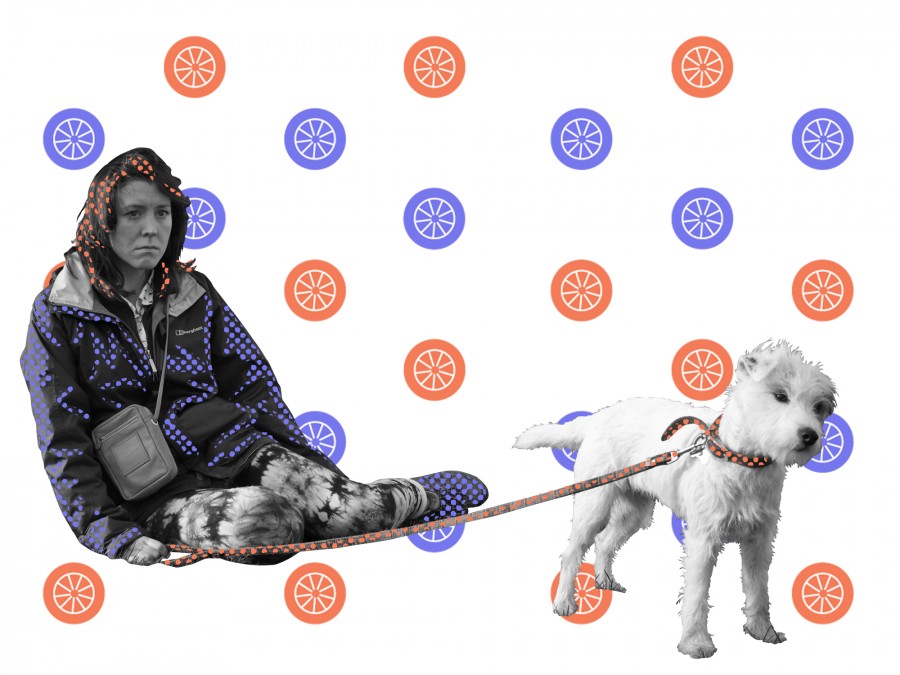
A regular fixture of cult mid-’00s TV comedies like Garth Marenghi’s Darkplace and The Mighty Boosh, Alice Lowe’s first major film role, in Ben Wheatley’s caravanning 2012 serial killer caper, felt like a long time coming. It was worth the wait, though. Not just one of the funniest female performances in recent years, but one of the best written by one too – Lowe penned the pitch-black, savagely funny script with her co-star, Steve “Aaaaaaaah!” Oram. AW
Jayne Mansfield’s fame resides mostly in her surreal figure and manufactured persona. The Girl Can’t Help It criticises this artificiality with her performance as Jerri Jordan, a girl forced by her ex-gangster saviour to become a singing star worth marrying. When discovering her lack of talent, her agent, Tom Miller (Tom Ewell), unscrupulously decides to market only her sex appeal. Exaggerating her exhibitionism, Mansfield fearlessly ridicules herself to better deride men’s dirty minds, but she brings a lightness that, first equated with stupidity, later reveals itself as a coping strategy: forbidden to think for herself, Jordan (and Mansfield?) chooses to laugh at her misfortune, until love gives her the nerve to rebel. ML
An early example of the comedy franchise feature, the Thin Man films saw William Powell and Myrna Loy team up as Nick and Nora Charles; the former an armchair detective with a fondness for fizz, the latter his unassumingly intelligent and daffy partner. The humour in these films (think the Marx Brothers go noir), derives largely from Powell and Loy’s rapier-sharp rejoinders along with their own interpersonal banter. The equilibrium between the two stars is perfectly balanced, and Loy’s performance is the thing that not only gives this original film its lift, but is the reason to sit through the increasingly desperate and, erm, thin sequels. DJ
As grossly inappropriate guidance counsellor Ms Perky, Allison Janney brings wit and a dash of surreal humour to this conventional and rather stilted teen movie. Preoccupied with writing erotic fiction, she makes thinly veiled sexual remarks and deadpan jokes that only seem to confuse and stun the students. Janney later found a more expansive space to develop her comedic talent as off-the-wall White House Press Secretary CJ Cregg in The West Wing, but her deadly delivery here is sublime. Elena Lazic
Broadway Danny Rose dispels the myth that all Woody Allen films, and muses, are essentially the same. Unlike Diane Keaton, Cate Blanchett and Marion Cotillard, Mia Farrow does not embody the elite art scene of 1960s New York or 1920s Paris in her role as Tina. She’s scatty and brash, she’s styled like Dolly Parton, and she has an affinity for low-life gangsters. Allen is at his most affectionate and accessible here, and Farrow is the perfect match for his hopeless talent agent. ALA
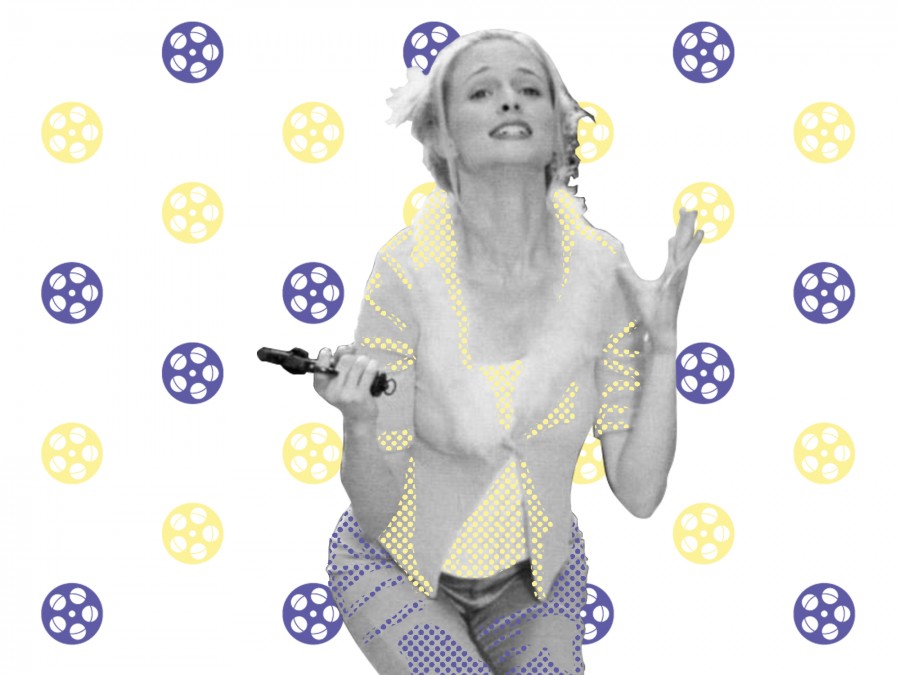
Or, What Rollergirl Did Next. Fresh off the bus from Hicksville with her (empty) head full of stardust, Heather Graham’s Daisy is exactly the kind of corn-fed bimbo low-rent LA producer Bobby Bowfinger needs to complete his crew of talentless delusionals before rolling camera on his magnum opus, Chubby Rain. Graham radiates innocence and gullibility, but the way Daisy exploits her wide-eyed sexuality to climb the Hollywood ladder hints at an untapped Machiavellian core she will need to conquer Tinseltown. Adam Lee Davies
Anxiously preoccupied with fitting into a ridiculously pretentious art world, matriarch Delia Deetz (Catherine O’Hara) barely conceals her contempt for dull husband, Charles (Jeffrey Jones), and goth-styled daughter, Lydia (Winona Ryder). When the family moves into a new home, scares from ‘bio-exorcist’ Beetlejuice (Michael Keaton) serve as a humbling experience for Deetz. O’Hara demonstrates her effortless comedic talent most memorably in a grotesque dinner sequence where she’s forced to express terror with facial expressions alone; the rest of her body is possessed by Beetlejuice and manipulated into performing an awkward dance number. EL
At the centre of Kenneth Branagh’s sun-soaked adaptation of Shakespeare’s contentious play lies Emma Thompson’s quick-witted, cynical Beatrice. Benedick (Branagh) is too arrogant to believe that that he’ll ever find a woman who can match him. From the outset, Thompson’s Beatrice is strong-willed, charming and brazen – an unstoppable force bound to prove him wrong. Catherine Karellis
Carole Lombard (born Jane Peters) secured her icon status before dying in a plane crash at 33. She was an effervescent performer, with the glamour of a starlet, and the delivery of a nimble comedienne. In My Man Godfrey, she starred (opposite her then husband, William Powell) as a ditzy, dizzy but good-hearted ingénue, Irene Bullock, who hires a homeless man to be a butler for her mad family. Bullock radiates innocence but is dogged in sexual and romantic pursuit. Lombard carried off these contrasts with panache. For further evidence of her comic nous, see Ernst Lubitsch’s To Be or Not To Be. Sophie Monks Kaufman
As Susie in David Wain’s outrageous and borderline experimental comedy Wet Hot American Summer, Amy Poehler exceeds the stereotypes of the summer camp counsellor. Not simply over-enthusiastic about making a real spectacle of the talent show she organises, she requires professional perfection from her performing teens. Beyond bossy, she screams at and insults anyone who gets in her way, only to then suddenly reverse to her standard exaggerated politeness and good spirit. In her first major film role, Poehler’s flawless comic timing and unflinching readiness to reach extremes of expression makes Susie unpredictable, acerbic and hysterically funny. ML
What are some of your favourite female comedy performances? Let us know @LWLies and check back tomorrow for part two.
Published 20 Jul 2016
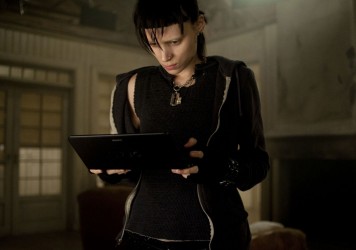
By Simran Hans
A look beyond the dominant male characters that inhabit the Gone Girl director’s cinema.
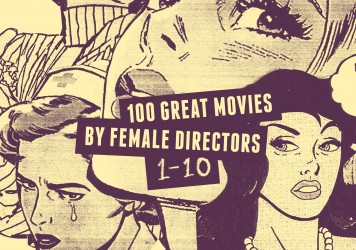
Read part one of our countdown celebrating the greatest female artists in the film industry.
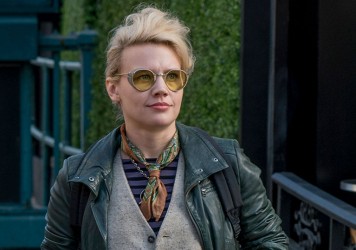
A film-stealing turn as Jillian Holtzman in the new Ghostbusters leads us to ask: who is this fabulously funny star?